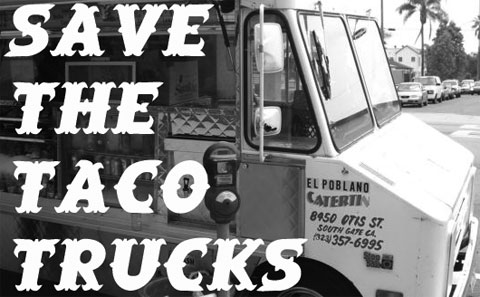It looks like take-out food choices in Raleigh are about to get more varied with the expansion of what will be allowed to be sold from a food truck or cart. Currently folks looking for a mid-day or late night quick meal have been limited to hot dogs and sausages but a revisiting of local rules will open the door for some more complex foods – such as italian meals, gourmet burgers and tacos – to be sold by mobile food vendors.
According to the Raleigh Public Record, much of the debate has focused on business implications (should a food cart selling pizza be allowed to park directly outside of a pizza restaurant, etc.). According to the vocal pro-food truck lobby, they want operate just like a regular commercial food business which will include regular visits from environmental health officer: 
Mike Stenke, owner of the Klausie’s pizza truck, has led the charge for allowing the trucks to park on city streets and is not satisfied with private parking lots. He said in a free marketplace, the city should not be protecting anyone.
Stenke said he is disappointed with the slow progress. He is in favor of limiting the number of food trucks, having regular health inspections and setting up proximity rules – as long as he has the opportunity to sell food.
Food trucks are regulated by the county like any other commercial kitchen.
I love food carts, and usually try to pick up some local specialities at some when travelling. I’m all for the inclusion of new types of foods. But there are increased risks associated with doing something other than a ready-to-eat food at a card. With complex foods (other than just reheating cooked meats) comes complicated (and potentially risky) preparation and handling steps. Multiple raw ingredients need to be kept at the right temperature, operators have to avoid cross-contamination, clean and sanitize their equipment and, keep bacteria and viruses off of their hands. All within the confines of a cart or trailer. It can be yummy, but making the meals safely is a tricky activity. And as a customer I want to know how the truck or cart does when it comes to inspection.
It took Los Angeles 12 years to apply their restaurant grading system to mobile vendors (of which there are 6,000 in Los Angeles County).
Health officials have been inspecting food trucks, stands and carts for years but this is the first time the vendors will receive letter grades. The new rules require food truck operators to explain to customers why their trucks received less than an A.
It’s unclear exactly which direction the council committee tasked with drafting rules and guidelines will go when it comes to addressing food safety and communicating inspection results to the public but I’d like to see the mobile units to receive letter grades and have their inspections posted online just like every other foodservice business. Currently a summary of the inspections exist (see an example here — I want to know whether the place has a thermometer or not) but scores aren’t provided.
Operators must know (and care) about the risks associated with the products they sell, and be responsible with sharing this information with their customers by and support a reasonable way to do this.
